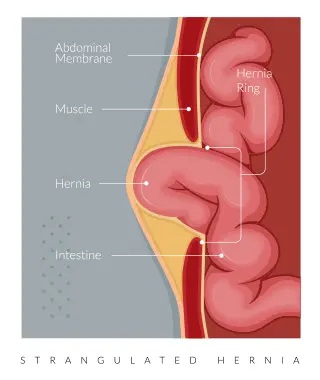Surgeons can help define exactly what type, location, and size a hernia is
For patients, a hernia is a bulge in the abdominal wall or groin. It usually becomes noticeable after a forceful activity and is often very uncomfortable.
For surgeons, it is simply a hole. It is a mechanical defect in the abdominal wall that can be repaired with suture and patches.
In Latin, it means “rupture”. The first records of hernias date back to 1500 B.C. Early hernias were treated with tight bandages wrapped around the bulge. This is similar to the modern “abdominal binder” which is still used today. Fortunately, we now have a better set of tools in our toolbox to address this problem.
They occur in parts of the abdominal wall where there are natural weak spots. Over time, and with repeated force, a weakness can turn into a hole. Once that hole has developed, it will always be present until it is fixed.
Many people are unaware of their hernias at these early stages. The noticeable “rupture” occurs when something on the inside of the abdomen protrudes through the hole. This can be a very unsettling sensation!

Most of the time, the protruding fat or intestine can be pushed back in with gentle pressure. If it can’t be pushed back in, then the problem becomes more serious. At that point, it may warrant emergent medical evaluation.
Not all hernias need surgery. So long as the bulge is not painful and can be reduced back in, you have time to decide how to proceed. You may choose to treat it like the ancient Mesopotamians and patch the hole with a garment worn on the outside! However, most hernias do become larger and more uncomfortable with time, and for many, surgery is the preferred answer.
How do you know if you need surgery? The best way to know is to schedule a consultation with a surgeon. Surgeons can help define exactly what type, location, and size a hernia is. Once we have defined it, we can give you the various options for observation or repair and the relative risks of each approach. A consultation is just a focused physical exam and conversation and should not be intimidating.
Sometimes I tell patients that a hernia is like a hole in the wall. You can ignore it, you can hang a picture in front it, and you can embrace it and live with it. But it will always be a part of you until you patch it.


